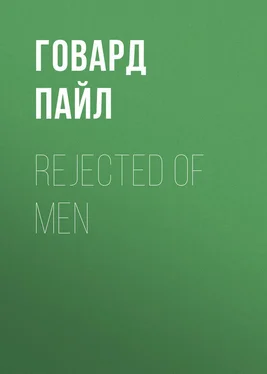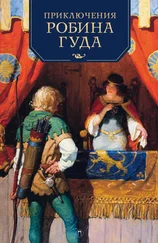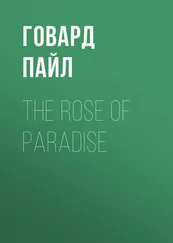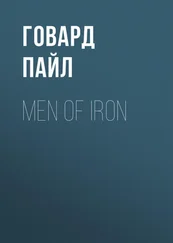Говард Пайл - Rejected of Men
Здесь есть возможность читать онлайн «Говард Пайл - Rejected of Men» — ознакомительный отрывок электронной книги совершенно бесплатно, а после прочтения отрывка купить полную версию. В некоторых случаях можно слушать аудио, скачать через торрент в формате fb2 и присутствует краткое содержание. Жанр: foreign_antique, foreign_prose, на английском языке. Описание произведения, (предисловие) а так же отзывы посетителей доступны на портале библиотеки ЛибКат.
- Название:Rejected of Men
- Автор:
- Жанр:
- Год:неизвестен
- ISBN:нет данных
- Рейтинг книги:3 / 5. Голосов: 1
-
Избранное:Добавить в избранное
- Отзывы:
-
Ваша оценка:
- 60
- 1
- 2
- 3
- 4
- 5
Rejected of Men: краткое содержание, описание и аннотация
Предлагаем к чтению аннотацию, описание, краткое содержание или предисловие (зависит от того, что написал сам автор книги «Rejected of Men»). Если вы не нашли необходимую информацию о книге — напишите в комментариях, мы постараемся отыскать её.
Rejected of Men — читать онлайн ознакомительный отрывок
Ниже представлен текст книги, разбитый по страницам. Система сохранения места последней прочитанной страницы, позволяет с удобством читать онлайн бесплатно книгу «Rejected of Men», без необходимости каждый раз заново искать на чём Вы остановились. Поставьте закладку, и сможете в любой момент перейти на страницу, на которой закончили чтение.
Интервал:
Закладка:
In the hollow vault of night we behold countless myriads of huge and flaming suns, scattered like dust through the sky, or sparkling in points of radiance, and we know that that created stellar system extends, without limit, into the emptiness of limitless space. We know that each incredibly gigantic sun–flaming with light and heat–follows a perfect and well-assigned orbit. We know that about each of these glorious suns there must revolve scores of planets, like this earth upon which we stand.
Seeing this fact with our eyes, it is not possible for the reason to suppose that all this well-ordered and perfect system of enormous stellar and planetary system was created, is governed, is sustained by blind and chaotic chance. Chance never built even so much as a brick wall. How could it, then, create a living sun whose heat and light give life to the planets that revolve about it?
There must be a Creator for these things–a Creator infinitely potent, infinitely intelligent–or else those things could not have been created.
On the other hand, man looks about him upon the earth, and there he beholds an equally and infinitely perfect creation. For every one of the myriad blades of grass, and every one of the myriad leaves of the trees, and every one of the myriad flowers of the field, is, in itself, as tremendously perfect in its every minutest particular as is the greatest sun that flames in the empty heavens. Not only does it live in a minute and orderly sequence of progressive existence, but it possesses an infinitely vital power of procreation, so that each tiny seed, under proper circumstances, has the power of filling the entire universe with its progeny.
Every bird, beast, and fish is not only exactly fitted into its surroundings–not only is each perfect even unto every hair, feather, and scale–not only is each endowed with a vitality that enables it upon an instant to adapt itself to the circumstances of its existence; but each in itself is endowed with the same potentiality of indefinitely procreating its kind with equal bodily perfection.
These things can neither be created nor sustained excepting by an intelligent Creator who makes and sustains them; for it is impossible for any reasoning man to suppose that vacuity and death has created that which is a fact and is alive–that nothingness can have created that which is not only perfect in itself, but which is endowed with such infinite potentiality.
And at the apex of all creation stands man himself, so nicely and perfectly adjusted to the conditions that surround him that it takes only a few degrees in the variation of so small a thing as the temperature of the air to destroy him or to sustain his life. And each man possesses not only volition, but thought and reason to such particularity that each tiny idea may be continued to infinity; or, when applied to the things of nature, may evolve a physical phenomenon that can affect or transform the entire economy of the world in which he lives.
Whence comes this perfect and intelligent life? Man does not cause himself to think, nor does he cause himself to live. He may shape and direct his thoughts, but intelligence comes to him without his own volition. He receives these things, but he does not cause either the one or the other to be created.
That which causes life and intelligence to exist and to inflow into man is and must be infinite vitality and infinite intelligence–an omniscient Creator–or else these things must spring from nothing.
Thus any man who thinks and reasons within himself must perceive that there actually is and does exist a divine and infinite Creator.
But that which we scribes and pharisees, priests and Levites, cannot really accept is the fact that this infinite Creator–this tremendous God, who sustains the universe and who flings blazing suns and planets by the handful through the heavens–that this omnipotent, omniscient, omnipresent Divinity should actually have become finitely incarnate upon this earth. It is still more impossible for us to believe with our reason that the humble wife of a common carpenter should have given Him birth as a little, whimpering, helpless babe among the cattle of a stable in Palestine.
Our caste has been compelled by the force of circumstances to accept this as a dogma, but we cannot believe it in our hearts. Consequently we build for ourselves an ideal Christ who is so different from the actual Christ that, were the real Christ to appear to-day, we would crucify Him exactly as we did nineteen hundred years ago.
It is, indeed, the crowning truth of the ages that Jehovah did enter finitely into the flesh of a man; that He was miraculously conceived; that He was born in a stable in Bethlehem, and that His mother was the wife of a journeyman carpenter, who had a carpenter-shop in Nazareth. But that truth is not for us; consequently we either become sadducees and deny the resurrection of the soul, or else we are pharisees who, with a helpless hypocrisy, try to cause ourselves, by some hocus-pocus of inverted reasoning, to believe that which we do not believe.
We do not really believe that the actual laws of nature were ever so preposterously violated as the Scriptures tell us. No rational pharisee ever really believed that water, at a touch, can be actually transmuted into wine; or that dead and gangrenous flesh ever was, at a touch, actually transformed into healthy tissues; or that eyes organically imperfect ever were, at a touch, made to receive the light like healthy orbs.
Either we falsify ourselves by saying that we believe these things, or else we benumb our reasoning so as not to think about them at all. Many of us would fain expurgate those miraculous narratives from the divine word, retaining only such spiritual and intangible ideas as are believable because they have no foundation in fact. Others of us give up the task as hopeless, and declare frankly that we do not know whether they are true or not, but that we are willing to give them the benefit of the doubt.
These things of divine truth are so preposterous to the common sense that only the ignorant can believe them. Wherefore the Scriptures are given into the hands of the ignorant for preservation, lest we, intelligent pharisees, should alter and amend them to fit our own ideas–in the which case they would inevitably perish.
For it is to be remembered that, while the divine Scriptures have lasted in their entirety through the ages, nearly every system of human philosophy–whether physical or metaphysical–has perished after a generation or two, to give place to another system. So would the Scriptures perish if it were left to us to amend them so as to fit the rational and intelligent science of the age.
We were born to crucify the truth; it is our mission in life, and we must not be blamed when we fulfil our destiny.
Shortly after that visit of the priests and Levites to the baptisms of John, the promised Messiah suddenly appeared in the midst of the motley crowd gathered to hear the truth.
A poor woman, the mother of two ordinary fishermen, thus described the divine miracle that thereupon happened. She told it somewhat thus: “I saw it. There was a great many people around; some saw it and some did not see it. I can’t tell just how it was, but it was after He went down into the water with John. There was a light as if it was sunshine up this way; then something came. It looked like a dove–they all said it was a dove. It looked like it came down upon Him. I don’t know how long it lasted–I saw it for a little and then it was gone. He was standing in the water along with John; then He came out close to where I stood. The folk were calling out ‘Hallelujah!’ all about us. They were crying ‘Hallelujah! Hallelujah!’They crowded so they pushed me into the water. I felt as though I were going crazy, and I, too, kept calling out ‘Hallelujah! Hallelujah!’”
Читать дальшеИнтервал:
Закладка:
Похожие книги на «Rejected of Men»
Представляем Вашему вниманию похожие книги на «Rejected of Men» списком для выбора. Мы отобрали схожую по названию и смыслу литературу в надежде предоставить читателям больше вариантов отыскать новые, интересные, ещё непрочитанные произведения.
Обсуждение, отзывы о книге «Rejected of Men» и просто собственные мнения читателей. Оставьте ваши комментарии, напишите, что Вы думаете о произведении, его смысле или главных героях. Укажите что конкретно понравилось, а что нет, и почему Вы так считаете.












